High-yield topics are one of the best ways to leveraging one’s preparation for the medical board/specialty exams. So, keeping this in mind, we thought of compiling a list of high-yield topics for MRCP Part 1 exam hoping that it would help excel your preparations for the MRCP Part 1 exam to the next level. We did a thorough research on Google and other medical forums for collecting these high-yield topics for MRCP Part 1 and have finally gathered a list of 100 high-yield topics for the MRCP Part 1. We hope those who aspire to take MRCP Part 1 exam would find it useful for their exam preparation. 🙂

Dr. Sujit Vasanth has compiled a list of 100 most commonly tested & high-yield concepts for the MRCP Part 1 exam. These are high-yield topics for the MRCP Part 1 exam and so are highly recommended to those who plan to take the exam in near future.
For those who have not been following our blog, we have written very important knowledge base articles like PLAB or MRCP and Best Books for MRCP Part 1. So, do check them out too! 🙂
CHECK ALSO: OnExamination MRCP Part 1 PDF Free Download [Direct Links]
Alright, so now without further ado, let’s proceed to the high-yield topics for MRCP Part 1. 🙂
High-Yield Topics for MRCP Part 1
Below is the list of 100 high-yield topics for MRCP Part 1 that are frequently tested in the exam. We hope you find this article useful in your MRCP Part 1 preparations. 🙂
** You may contribute to this blog post simply by leaving your comments below. 🙂
- Acromegaly – Diagnosis: OGTT followed by GH concentration.
- Cushings – Diagnosis: 24hr urinary free cortisol. Addisons –> short synacthen.
- Rash on Buttocks – Dermatitis herpetiformis (coeliac dx).
- AF with TIA –> Warfarin. Just TIA’s with no AF –> Aspirin
- Herpes Encephalitis –> temporal lobe calcification OR temporoparietal attenuation – subacute onset i.e. Several days.
- Obese woman, papilloedema/headache –> Intracranialrcanial Hypertention.
- Drug induced pneumonitis –> methotrexate or amiodarone.
- Chest Discomfort and Dysphagia –> achalasia.
- Foreign Travel, macpap rash/flu like illnes –> HIV acute.
- Cause of Gout –> dec urinary excretion.
- Bullae on the hands and fragule SKIN torn by minor trauma –> porphyria cutanea tarda.
- Splenectomy –> need pneumococcal vaccine AT LEAST 2 weeks pre-op and for life.
- Primary Hyperparathyroidism –> high Ca, normal/low PO4, normal/high PTH (in elderly).
- Middle aged man with KNEE arthritis –> gonococcal sepsis (older people -> Staph).
- Sarcoidosis, Erythema Nodosum, Arthropathy –> Loffgrens syndrome benign, no Rx needed.
- TREMOR postural, slow progression, titubation, relieved by OH->benign essential TREMOR AutDom. (MS – titbation, PD – no titubation)
- Electrolytes disturbance causing confusion – low/high Na.
- Contraindications lung Surgery –> FEV dec bp 130/90, Ace inhibitors (if proteinuria analgesic induced headache.
- 1.5 cm difference between kidneys -> Renal artery stenosis –> Magnetic resonance angiogram.
- Temporal Tenderness–> temporal arteritis -> steroids > 90% ischaemic neuropathy, 10% retinal art occlusion.
- Severe retroorbital, daily headache, lacrimation –> cluster headache.
- Pemphigus – involves mouth (mucus membranes), pemphigoid – less serious NOT mucosa.
- Diagnosis of Polyuria -> water deprivation test, then DDAVP.
- Insulinoma -> 24 hr supervised fasting hypoglycaemia.
- Diabetes Random >7 or if >6 OGTT (75g) -> >11.1 also seen in HCT.
- Causes of villous atrophy: coeliac (lymphocytic infiltrate), Whipples , dec Ig, lymphoma, trop sprue (rx tetracycline).
- Diarrhea, bronchospasm, flushing, tricuspid stenosis -> gut carcinoid c liver mets.
- Hepatitis B with general deterioration -> hepaocellular carcinoma.
- Albumin normal, total protein high -> myeloma (hypercalcaemia, electrophoresis).
- HBSag positive, HB DNA not detectable –> chornic carier.
- M.I, artery involved -> Right coronary artert.
- Aut dom conditions: Achondroplasia, Ehler Danlos, FAP, FAMILIAL hyperchol,Gilberts, Huntington’s, Marfans’s, NFT I/II, Most porphyrias, tuberous sclerosis, vWD, PeutzJeghers.
- X linked: Beck/Duch musc dyst, alports, Fragile X, G6PD, Haemophilia A/B.
- Loud S1: MS, hyperdynamic, short PR. Soft S1: immobile MS, MR.
- Loud S2: hypertension, AS. Fixed split: ASD. Opening snap: MOBILE MS, severe near S2.
- HOCM/MVP – inc by standing, dec by squating (inc all others). HOCM inc by valsalva, decs all others. Sudden death athlete, FH, Rx. Amiodarone, ICD.
- MVP sudden worsening post MI. Harsh systolic murmur radites to axilla.
- Dilated Cardiomyopathy: OH, bp, thiamine/selenium deficiency, MD, cocksackie/HIV, preg, doxorubicin, infiltration (HCT, sarcoid), tachycardia.
- Restrictive Cardiomyopathy: sclerodermma, amyloid, sarcoid, HCT, glycogen storage, Gauchers, fibrosis, hypereosinophilia Lofflers, caracinoid, malignancy, radiotherapy, toxins.
- Tumor compressing Respiratory tract –> investigation: flow volume loop.
- Guillan Barre syndrome: check VITAL CAPACITY.
- Horners – sweating lost in upper face only – lesion proximal to common carotid artery.
- Internuclear opthalmoplegia: medial longitudinal fasciculus connects CN nucleus 3-4. Ipsilateral adduction palsy, contralateral nystagmus. Aide memoire (TRIES TO YANK THE ipsilateral BAD eye ACROSS THE nose ). Convergence retraction nystagmus, but convergence reflex is normal. Causes: MS, SLE, Miller fisher, overdose(barb, phenytoin, TCA), Wernicke.
- Progressive Supranuclear palsy: Steel Richardson. Absent voluntary downward gaze, normal dolls eye . i.e. Occulomotor nuclei intact, supranuclear Pathology .
- Perinauds syndrome: dorsal midbrain syndrome, damaged midrain and superior colliculus: impaired upgaze (cf PSNP), lid retraction, convergence preserved. Causes: pineal tumor, stroke, hydrocephalus, MS.
- Dementia, gait abnormaily, urinary incontinence. Absent papilloedema–>Normal pressure hydrocephalus.
- Acute red eye -> acute closed angle glaucoma >> less common (ant uveitis, scleritis, episcleritis, subconjuntival haemmorrhage).
- Wheeles, URTICARIA , drug induced -> aspirin.
- Sweats and weight gain -> insulinoma.
- Diagnostic test for asthma -> morning dip in PEFR >20%.
- Causes of SIADH : chest/cerebral/pancreas Pathology , porphyria, malignancy, Drugs (carbamazepine, chlorpropamide, clofibrate, atipsychotics, NSAIDs, rifampicin, opiates)
- Causes of Diabetes Insipidus: Cranial: tumor, infiltration, trauma Nephrogenic: Lithium, amphoteracin, domeclocycline, prologed hypercalcaemia/hypornatraemia, FAMILIAL X linked type
- Bisphosphonates: Inhibit osteoclast activity, prevent steroid incduced osteoperosis (vitamin D also).
- Returned from airline flight, TIA-> paradoxical embolus do TOE.
- Alcoholic, given glucose develops nystagmus -> B1 deficiency (wernickes). Confabulation->korsakoff.
- Mono-artropathy with thiazide -> gout (neg birefringence). NO ALLOPURINOL for acute.
- Painful 3rd nerve Palsy -> posterior communicating artery aneurysm till proven otherwise
- Late complication of scleroderma –> pulmonary hypertension plus/minus fibrosis.
- Causes of erythema mutliforme: lamotrigine
- Vomiting, abdominal pain, hypothyroidism -> Addisonian crisis (TFT typically abnormal in this setting DO NOT give thyroxine).
- Mouth/genital ulcers and oligarthritis -> behcets (also eye /SKIN lesions, DVT)
- mixed drug overdose most important step -> Nacetylcysteine (time dependent prognosis)
- Cavernous sinus syndrome – 3rd nerve palsy, proptosis, periorbital swlling, conj injectn
- Asymmetric Parkinsons -> likely to be idiopathic
- Obese, NIDDM female with abnormal LFT’s -> NASH (non-alcoholic steatotic hepatitis)
- Fluctuating level of conciousness in elderly plus/minus deterioration –> chronic subdural. Can last even longer than 6 months
- Sensitivity –> TP/(TP plus FN) e.g. For SLE – ANA highly sens, dsDNA:highly specific
- RR is 8%. NNT is —-> 100/8 –> 50/4 –> 25/2 –> 13.5
- Ipsilateral ataxia, Horners, contralateral loss pain/temp –> PICA stroke (lateral medulary syndrome of Wallenburg)
- Renal stones (80% calcium, 10% uric acid, 5% ammonium (proteus), 3% other). Uric acid and cyteine stone are radioluscent.
- Hyperprolactinaemia (allactorrohea, amenorrohea, low FSH/LH) -> Da antags (metoclopramide, chlorpromazine, cimetidine NOT TCA’s), pregnancy, PCOS, pit tumor/microadenoma, stress.
- Distal, asymetric arthropathy -> PSORIASIS
- An episodic headache with tachycardia -> phaeochromocytoma
- Very raised WCC -> ALWAYS think of leukaemia.
- Diagnosis of CLL –> immunophenotyping NOT cytogenetics, NOT bone marrow
- Prognostic factors for AML -> bm karyotype (good/poor/standard) >> WCC at diagnosis.
- Pancytopenia with raised MCV –> check B12/folate first (other causes possble, but do this FIRST). Often associayed with phenytoin use –> decreased folate
- Miscarriage, DVT, stroke –> LUPUS anticoagulant –> lifelong anticoagulation
- Hb elevated, dec ESR -> polycythaemua (2ndry if paO2 low)
- Anosmia, delayed puberty -> Kallmans syndrome (hypogonadotrophic hypogonadism)
- Diagnosis of PKD -> renal US even if think anorexia nervosa
- Commonest finding in G6PD hamolysis -> haumoglobinuria
- Mitral stenosis: loud S1 (soft s1 if severe), opening snap.. Immobile valve -> no snap.
- Flank pain, urinalysis: blood, protein -> renal vein thrombosis. Causes: nephrotic syndrome, RCC, amyloid, acute pyelonephritis, SLE (atiphospholipid syndrome which is recurrent thrombosis, fetal loss, dec plt. Usual cause of cns manifestations assoc with LUPUS ancoagulant, anticardiolipin ab)
- Anemia in the elderly assume GI malignancy
- Hypothermia, acute renal failure -> rhabdomyolysis (collapse assumed)
- Pain, numbness lateral upper thigh –> meralgia paraesthesia (lat cutaneous nerve compression usally by by ing ligament)
- Diagnosis of haemochromatosis: screen with Ferritin, confirm by tranferrin saturation, genotyping. If nondiagnostic do liver biopsy 0.3% mortality
- 40 mg hidrocortisone divided doses (bd) –> 10 mg prednisolone (ie. Prednislone is x4 stronger)
- BTS: TB guidlines – close contacts -> Heaf test -> positive CXR, negative –> repeat Heaf in 6 weeks. Isolation not required
- Diptheria -> exudative pharyngitis, lymphadenopathy, cardio and neuro toxicity.
- Indurated plaques on cheeks, scarring alopecia, hyperkeratosis over hair follicles ->>Discoid LUPUS
- Weight loss, malabsoption, increase ALP -> pancreatic cancer
- Foreign travel, tender RUQ, raised ALP –> liver abscess do U/S
- Weight loss, anaemia (macro/micro), no obvious cause -> coeliac (diarrhoea does NOT have to be present)
- Haematuria, proteinuria, best investigation –> if glomerulonephritis suspected –> renal biopsy
- Venous ulcer treatment –> exclude arteriopathy (eg ABPI), control oedema, prevent infection, compression bandaging.
- Malaria, incubation within 3/12. can be relapsing /remitting. Vivax and Ovale (West Africa) longer imcubation.
- Fever, lymphadenopathy, lymphocytosis, pharygitis —>EBV —> heterophile antibodies
- GI bleed after endovascular AAA Surgery –> aortoenteric fistula
Courtesy: rxpgonline

![High-Yield Topics for MRCP Part 1 [Highly Recommended]](https://www.medicosrepublic.com/wp-content/uploads/2017/08/High-Yield-Topics-for-MRCP-Part-1-Highly-Recommended-696x365.jpg)

![MCQs for the New MRCPsych Paper A with Answers Explained (MasterPass) 1st Edition PDF Free Download [Direct Link]](https://www.medicosrepublic.com/wp-content/uploads/2022/06/MCQs-for-the-New-MRCPsych-Paper-A-with-Answers-Explained-PDF-1-696x365-1-218x150.jpg)
![MRCPCH 1: Essential Questions in Paediatrics Second Edition PDF Free Download [Direct Link]](https://www.medicosrepublic.com/wp-content/uploads/2022/06/MRCPCH-1-Essential-Questions-in-Paediatrics-PDF-1-696x365-1-218x150.jpg)
![Cases for PACES 3rd Edition PDF Free Download [Direct Link] Cases for PACES 3rd Edition PDF](https://www.medicosrepublic.com/wp-content/uploads/2019/05/Cases-for-PACES-3rd-Edition-PDF-218x150.jpg)
![Essential Revision Notes for MRCP 4th Edition PDF Free Download [Direct Link] Essential Revision Notes for MRCP 4th Edition PDF](https://www.medicosrepublic.com/wp-content/uploads/2019/03/Essential-Revision-Notes-for-MRCP-4th-Edition-PDF-1-218x150.jpg)


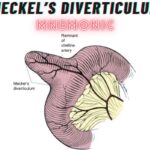
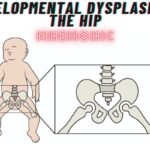
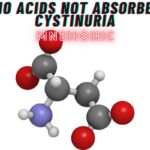
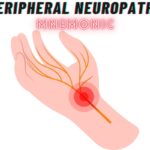
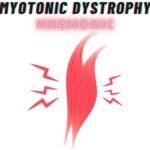
![Gerstmann Syndrome Features Mnemonic [Easy-to-remember] Gerstmann Syndrome Features Mnemonic](https://www.medicosrepublic.com/wp-content/uploads/2025/06/Gerstmann-Syndrome-Features-Mnemonic-150x150.jpg)
![Cerebellar Signs Mnemonic [Easy to remember] Cerebellar Signs Mnemonic](https://www.medicosrepublic.com/wp-content/uploads/2025/06/Cerebellar-Signs-Mnemonic-150x150.jpg)
![Seizure Features Mnemonic [Easy-to-remember] Seizure Features Mnemonic](https://www.medicosrepublic.com/wp-content/uploads/2025/06/Seizure-Features-Mnemonic-1-150x150.jpg)

![Recognizing end-of-life Mnemonic [Easy to remember]](https://www.medicosrepublic.com/wp-content/uploads/2025/06/Recognizing-end-of-life-Mnemonic-150x150.jpg)
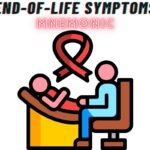
![Multi-System Atrophy Mnemonic [Easy-to-remember] Multi-System Atrophy Mnemonic](https://www.medicosrepublic.com/wp-content/uploads/2025/06/Multi-System-Atrophy-Mnemonic-150x150.jpg)
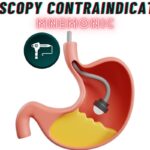
![How to Remember Southern, Northern, and Western Blot Tests [Mnemonic] How to Remember Southern, Northern, and Western Blot Tests](https://www.medicosrepublic.com/wp-content/uploads/2025/06/How-to-Remember-Southern-Northern-and-Western-Blot-Tests-150x150.jpg)
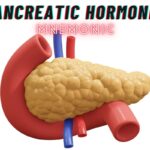
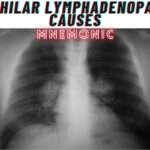
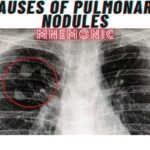
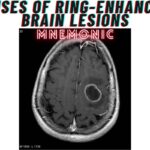
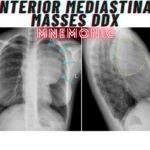
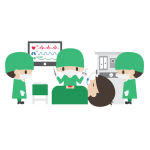




fantastic and very useful topics
Thank you Dr. Aurangzaib! 🙂
feeling thankful
How can we download? There is no link for the book
If someone know how to, help please. 🙂
Very useful topics
Thanks
Hi all…
its actually my list….I think it needs to be updated,,,just a start…
3. Rash on Buttocks – Dermatitis herpetiformis (coeliac dx). I think you should also consider henock schonlein purpura which will be purpuric.
17. Electrolytes disturbance causing confusion – low/high Na. I think should also add severe hypercalcaemia usually in malignancy.
As some of the NICE guidance has been updated anyone studying could update…I would think the TIA line should probably be updated too…
regards
Sujit